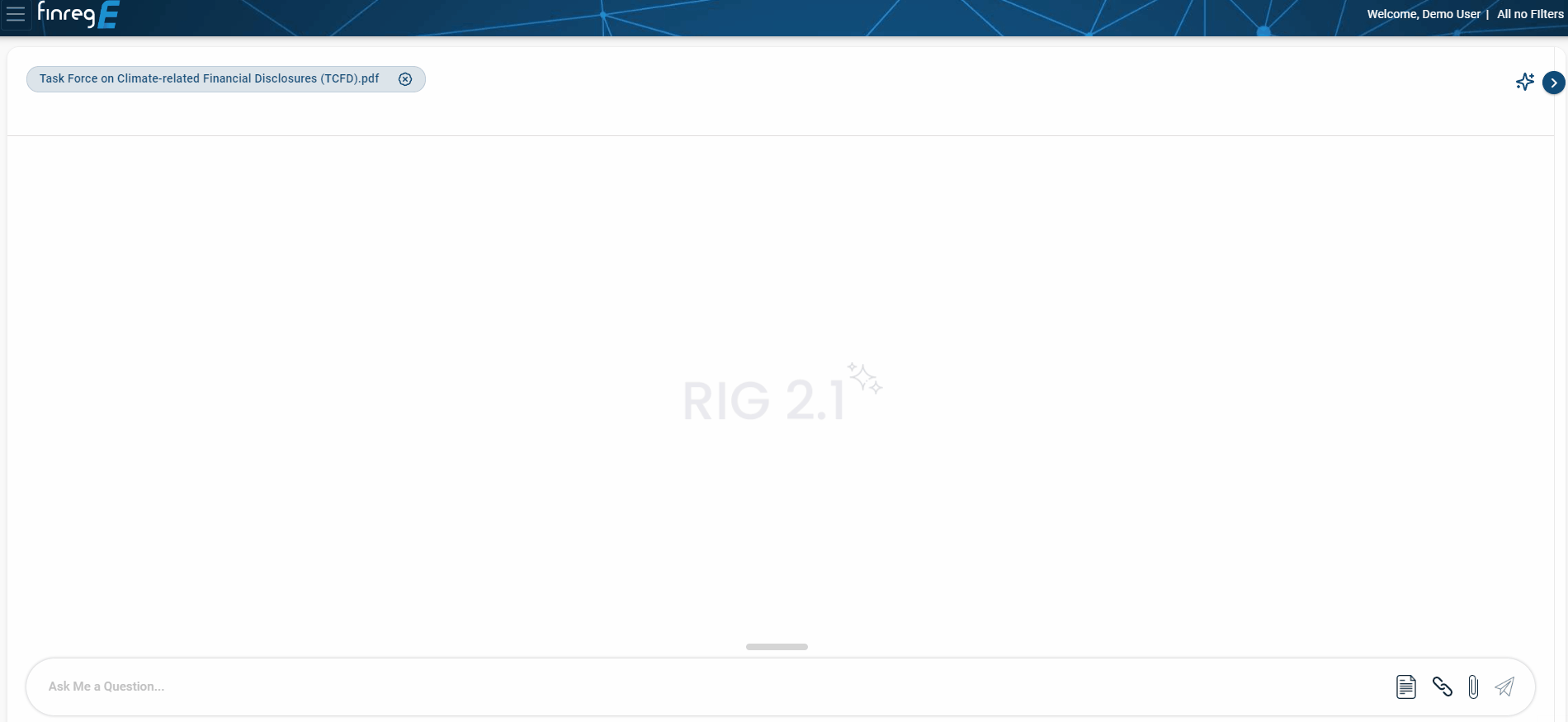Compliance with climate risk disclosures is no longer optional. Regulators aren’t waiting and neither should you.
With new mandates rolling out across the US, UK, EU, and beyond, compliance, legal, and risk teams are now in the spotlight as they face increasing scrutiny from regulators and rising demands for transparency from investors.
A current regulatory priority is to ensure that financial institutions disclose these risks accurately and consistently.
Unfortunately, static spreadsheets or legacy tools won’t cut it, and a certain degree of future proofing is required.
Regulatory intelligence platforms like FinregE are helping financial institutions worldwide stay ahead of climate related disclosure rules by automating compliance, reducing risk, and making sure nothing gets missed when the next regulatory update lands.
Why financial firms can’t ignore climate disclosures?
Climate risks can’t be treated as a side issue anymore now that they’re affecting credit markets, investment decisions, supply chains, and regulatory frameworks.
Investors, regulators, and clients all want to know: how are you assessing and managing climate-related risks?
Key reasons why climate disclosures are critical:
- Regulators are watching: Mandatory climate reporting laws are coming into force across major markets. Ignoring them isn’t just non-compliance, it can mean lost trust from the regulator.
- Investors care: ESG isn’t a trend. It affects valuations, portfolio decisions, and access to capital.
- Climate risk is a form of financial risk: Encompassing operational disruptions, declining asset values, and increasing credit defaults.
- It affects reputation: Institutions with strong climate reporting aren’t just checking boxes, they’re sending a message: we’re prepared.
Key global climate disclosure and ESG regulations
1. Task Force on Climate-Related Financial Disclosures (TCFD)
TCFD is a global standard for reporting climate-related financial risks. It is structured around four areas:
- Governance – How leadership oversees climate risks
- Strategy – How climate affects business plans
- Risk management – How risks are identified and addressed
- Metrics & targets – How emissions and goals are measured
Countries like the UK, EU, Japan, Canada, and New Zealand now require TCFD-aligned reporting.
2. European Union – Corporate Sustainability Reporting Directive (CSRD)
Launched in 2024, the CSRD requires European companies to:
- Disclose their climate risks and mitigation plans.
- Report Scope 1, 2, and 3 emissions.
- Align with the EU Green Deal and sustainable finance rules.
3. United States – SEC climate disclosure rules
The SEC has proposed climate reporting for publicly traded companies, including:
- Financial risks from climate change
- Greenhouse gas emissions
- Integration of climate risks into financial statements
At the federal level, the rollback of climate policies and withdrawal from international commitments has created tension with pro-ESG states. States like California are mandating climate disclosures, while others have gone to ban ESG investing altogether. The result is a fractured and politically tense landscape for businesses trying to navigate climate compliance in the US.
4. United Kingdom – Mandatory TCFD reporting
The UK has made TCFD reporting mandatory for big players: companies, insurers, and asset managers. Required actions include:
- Climate scenario analysis
- Reporting on climate governance and risk strategy
- Alignment with UK’s net-zero and green finance policies
5. International Sustainability Standards Board (ISSB) – IFRS S2 Climate Standard
ISSB’s IFRS S2 standard aims to unify global climate disclosure rules. Countries like Canada, Australia, and Singapore are moving toward adoption.
What are the challenges in climate disclosure compliance?
Even with frameworks in place, financial institutions face major hurdles:
- Collecting accurate climate risk data across the institution is not easy.
- Climate-related rules vary by country, sector, and framework.
- It is tough to translate climate risk into financial terms.
- Disclosures need to work within your existing reporting and risk systems.
AI-powered tools like FinregE’s RIG help financial institutions automate climate compliance, track regulatory changes, and align disclosures across evolving ESG frameworks.
Major climate disclosure penalties
Regulators are not just setting expectations; they are enforcing them. Firms that misstate, hide, or exaggerate climate-related risks are facing real consequences.
Here are five significant fines:
- In 2022, the SEC fined a global corporation $50 million for downplaying its climate risk exposure in investor reports.
- In 2023, a European bank was hit with a €25 million fine by ESMA for inaccurate disclosures linked to its sustainability bonds.
- The UK’s FCA fined a major energy company £30 million in 2021 for reporting flawed Scope 3 emissions data.
- The Monetary Authority of Singapore (MAS) fined a financial institution SGD 10 million for greenwashing violations in 2022.
Finrege’s AI-driven solution for climate disclosure and ESG compliance
ESG requirements are getting more complex, and financial institutions need tools that can keep up. That means real intelligence, automation, and the ability to adapt in real-time.
FinregE’s AI-powered Regulatory Insight Generator (RIG) helps teams cut through the complexity and stay on top of climate disclosure rules as they evolve.
- Break down complex regulations like TCFD, CSRD, and SEC rules into actionable guidance.
- Identify which rules apply to you, based on your business model and location.
- Use predictive insights to stay ahead of upcoming changes and plan your compliance strategy before laws are enforced.

RIG is fully integrated into FinregE’s workflows, enabling structured execution of disclosure obligations. These workflows:
- Assess impact: Understand how new rules affect your operations and portfolios.
- Plan the response: Assign teams, set milestones, track progress.
- Stay current: Get real-time alerts when regulations evolve.
FinregE monitors over 100 global sources—governments, central banks, regulators, and standards bodies – to give you:
- Climate risk disclosure frameworks (e.g., TCFD, ISSB, SEC)
- Net-zero strategies and national decarbonization plans
- Carbon pricing schemes, emissions trading, and green taxonomies
- Nature and biodiversity disclosure initiatives (e.g., TNFD)
- Climate governance mandates for boards and senior management
- Scope 3 emissions, supply chain sustainability, and circular economy policies
Using smart trend analysis, you get early warnings on fast-moving topics like biodiversity risk, carbon markets, and emissions reporting.
- Real-time dashboards show what is due, what is changed, and what is coming.
- Jurisdiction-specific reporting for CSRD, TCFD, IFRS S2 and more.
- Full audit trail across every compliance action.
FinregE supports collaboration across legal, compliance, ESG, and risk teams with:
- Role-based workflows and milestone tracking
- Auto-alerts to flag deadlines and action points
- Consultation workflows for engaging with regulators and industry groups
Leaders get visibility. Teams stay coordinated. Regulators see you’re on top of it.
The future of climate-related financial disclosures
Climate-related financial disclosure is quickly becoming the norm, not the exception. Firms that wait will fall behind.
Firms that automate and strengthen their climate disclosures do not just avoid fines—they gain investor trust, reduce volatility, and future-proof their business.
Want to see how FinregE makes climate disclosure easier? Book a demo and take a closer look.




